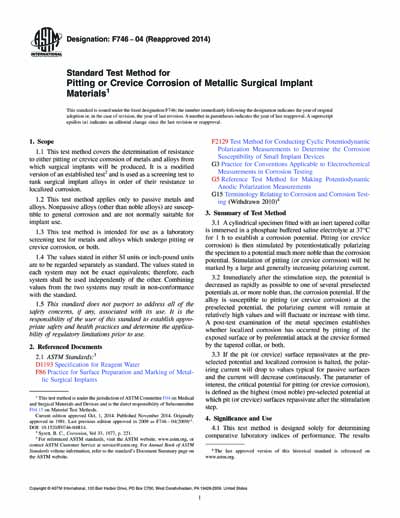Historical
ASTM F746-04(2014)
Standard Test Method for Pitting or Crevice Corrosion of Metallic Surgical Implant Materials
1.1 This test method covers the determination of resistance to either pitting or crevice corrosion of metals and alloys from which surgical implants will be produced. It is a modified version of an established test2 and is used as a screening test to rank surgical implant alloys in order of their resistance to localized corrosion.
1.2 This test method applies only to passive metals and alloys. Nonpassive alloys (other than noble alloys) are susceptible to general corrosion and are not normally suitable for implant use.
1.3 This test method is intended for use as a laboratory screening test for metals and alloys which undergo pitting or crevice corrosion, or both.
1.4 The values stated in either SI units or inch-pound units are to be regarded separately as standard. The values stated in each system may not be exact equivalents; therefore, each system shall be used independently of the other. Combining values from the two systems may result in non-conformance with the standard.
1.5 This standard does not purport to address all of the safety concerns, if any, associated with its use. It is the responsibility of the user of this standard to establish appropriate safety and health practices and determine the applicability of regulatory limitations prior to use.
Content Provider
ASTM International [astm]






